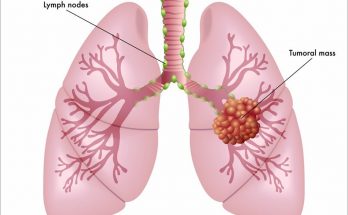A dry cough feels like an irritating sensation in the throat. Many people refer to it as a tickling or scratching type of feeling. Others feel like they are choking or have a stabbing feeling along the throat lining. The cough is called a dry cough because no mucus or phlegm is involved. It is not as deep as a wet cough would be. The feeling usually disappears after a couple of coughs or after few sips of water.
The symptoms may vary depending on the cause. If the cough is due to an inhalation of chemicals or spices it will usually go away after the person has been exposed to fresh air for a short time. A dry cough due to a dry environment may take a longer to get rid of. A humidifier or hot shower may help relieve the dry cough immediately. Coughs brought on by chemical exposure can be violent and painful and require medical attention in the more severe cases.
Dry coughs that are due to viruses may go away for a couple of days and return in the form of a wet cough. This happens when the virus is allowed to grow inside the respiratory system after the dry coughing attempt is unsuccessful. If a person has been exposed to a cold or flu virus the cough usually lasts several days up to several weeks before it will subside.
The cough is usually very light and is often more like clearing the throat than an actual full on cough. Ear infections may also cause a dry cough and should be seen by a doctor.
Those who suffer from acid reflux disease or GERD will most likely experience a dry cough for several hours after eating spicy foods or foods that increase stomach acid. Laying down after eating will generally result in some dry coughing. This type of cough can be alleviated with acid relief medications or will lessen after several hours when the stomach has been able to digest the food.
In some cases coughing may cause a person to vomit because of the bile coming through the esophagus. This only happens in extreme cases and can usually be avoided by keeping upright during an indigestion episode.
Asthma sufferers may experience severe dry coughing symptoms. The person may feel like they are unable to catch their breath and become lightheaded after a coughing fit. They tend to bend forward with the more painful and severe cough spasms. An inhaler or breathing treatment can provide immediate relief in these situations.
If a person begins coughing because they are choking, they typically need to cough long enough to dislodge whatever it is that caused the airway to become blocked. After removing the offending particle, they may still feel the sensation and continue to have a mild cough for several hours following the episode. This type of cough is generally very mild and does not induce pain in most cases.
People who suffer from allergies may have a dry cough. This is due to the sinus’s draining into the throat and triggering the nerve endings to send a cough reaction. These types of coughs are mild and may be sporadic depending on the severity of a person’s allergies.
The duration and severity of the dry cough will depend on the underlying cause. The cause may be difficult to diagnose in those who have a chronic dry cough. Allergy testing may be necessary to rule out different types of allergy induced coughs. Allergies can trigger asthma attacks as well and a person should have an inhaler on hand if they are known asthmatics.
Those with cold and flu viruses will have to wait for the illness to run its course before the cough completely goes away, which could be up to a month after other symptoms have disappeared. For chronic or more serious illnesses, the dry cough is usually treated with an over the counter medication when needed.
